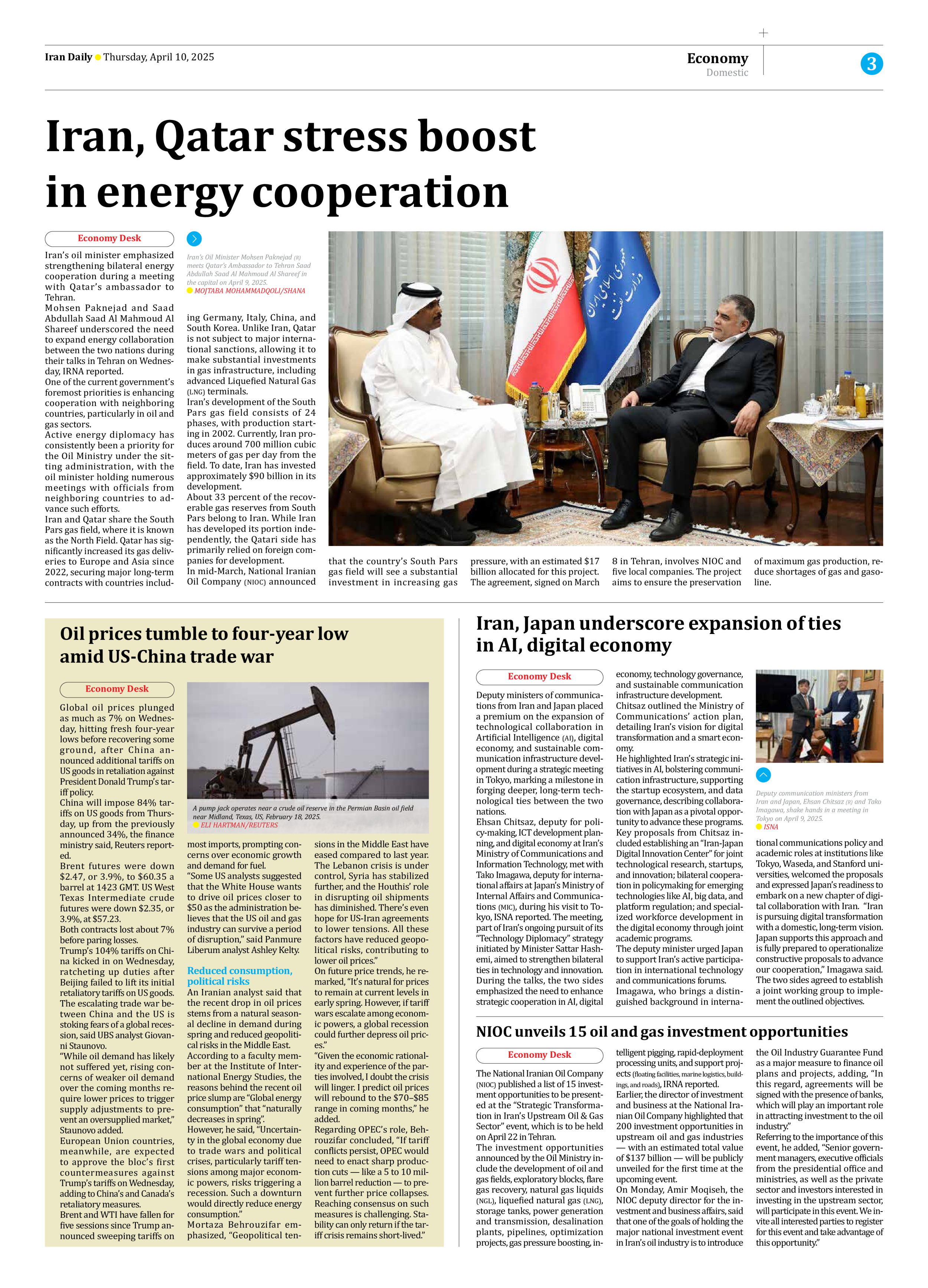
Iran, Qatar stress boost in energy cooperation
Iran’s oil minister emphasized strengthening bilateral energy cooperation during a meeting with Qatar’s ambassador to Tehran.
Mohsen Paknejad and Saad Abdullah Saad Al Mahmoud Al Shareef underscored the need to expand energy collaboration between the two nations during their talks in Tehran on Wednesday, IRNA reported.
One of the current government’s foremost priorities is enhancing cooperation with neighboring countries, particularly in oil and gas sectors.
Active energy diplomacy has consistently been a priority for the Oil Ministry under the sitting administration, with the oil minister holding numerous meetings with officials from neighboring countries to advance such efforts.
Iran and Qatar share the South Pars gas field, where it is known as the North Field. Qatar has significantly increased its gas deliveries to Europe and Asia since 2022, securing major long-term contracts with countries including Germany, Italy, China, and South Korea. Unlike Iran, Qatar is not subject to major international sanctions, allowing it to make substantial investments in gas infrastructure, including advanced Liquefied Natural Gas (LNG) terminals.
Iran’s development of the South Pars gas field consists of 24 phases, with production starting in 2002. Currently, Iran produces around 700 million cubic meters of gas per day from the field. To date, Iran has invested approximately $90 billion in its development.
About 33 percent of the recoverable gas reserves from South Pars belong to Iran. While Iran has developed its portion independently, the Qatari side has primarily relied on foreign companies for development.
In mid-March, National Iranian Oil Company (NIOC) announced that the country’s South Pars gas field will see a substantial investment in increasing gas pressure, with an estimated $17 billion allocated for this project.
The agreement, signed on March 8 in Tehran, involves NIOC and five local companies. The project aims to ensure the preservation of maximum gas production, reduce shortages of gas and gasoline.







